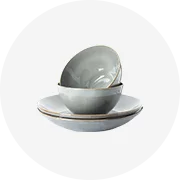
Customized 4 Compartment Black Microwave Disposable Plastic Lunch Boxes Hot Food Meal Prep Containers With Lid


Merryart Reusable Round Empty Plastic Cylinder Container Cookie Jars With Lids For Kitchen Food Home Storage Of Cookie




















Heat resistant containers are essential for various storage and culinary applications, designed to withstand high temperatures without compromising their integrity or contents. These containers come in multiple forms, including heat resistant glass jars, heat proof mason jars, and heat resistant plastic bags, catering to a broad range of needs from kitchen storage to on-the-go meal solutions.
The materials used in heat resistant containers are selected for their durability and thermal stability. Heat resistant glass containers are popular for their non-reactive nature, making them ideal for acidic or colored foods. Alternatively, heat resistant plastic bags offer flexibility and are often used for sous-vide cooking, a method that requires both heat resistance and sealability. For those seeking reusable options, heat resistant tupperware provides a sustainable choice for food storage.
The versatility of heat resistant containers is evident in their wide range of applications. Heat resistant lunch boxes are a go-to for professionals and students alike, offering a safe way to carry and reheat meals. In the culinary industry, heat proof pots and fire resistant pots are indispensable for cooking at high temperatures. These containers often feature airtight seals, clear visibility of contents, and are designed for stackability to maximize space efficiency.
Choosing the right container can significantly impact food safety and quality. Heat resistant containers ensure that foods are stored and cooked without the risk of melting or releasing harmful substances. They are also typically dishwasher safe, making cleanup a breeze. Moreover, the longevity of materials like heat resistant glass bottle and jars means they can be reused multiple times, reducing waste and offering better value over time.
When selecting a heat resistant container, consider the specific needs of your application. For instance, a heat proof glass jar may be ideal for canning and preserving, while a heat resistant storage container might be better suited for dry goods. It's important to assess the temperature range, chemical resistance, and the type of seal when making your choice.
In conclusion, heat resistant containers are a fundamental component in both commercial and personal kitchens, offering safe and reliable options for food storage and preparation. With a variety of materials and designs available, these containers cater to a multitude of uses while ensuring the safety and integrity of their contents.